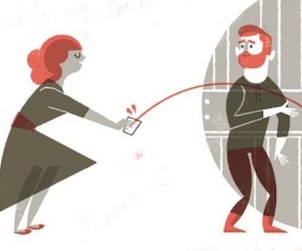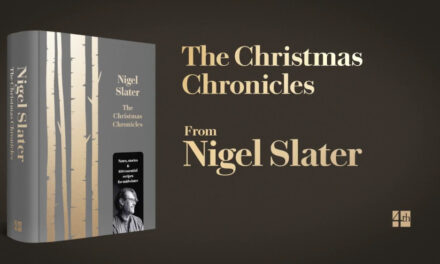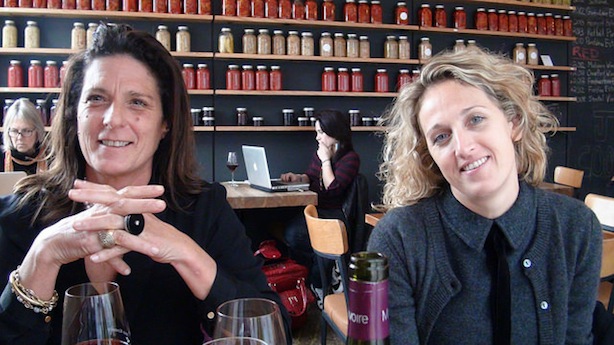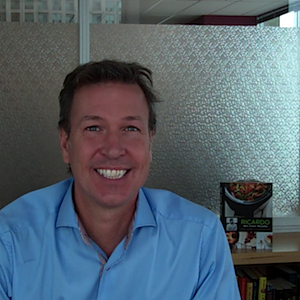by Kerry Knight
Dear Graeme
No, you bastard, I am not unemployed, ha ha, I am “reviewing” “cookbooks” for a Toronto based website called Good Food Revolution. This week’s assignment is to review Eating Animals by Jonathan Safran Foer, the American wunderkind that wrote Everything is Illuminated and Extremely Loud and Incredibly Close.
Did you read those? I thought Everything is Illuminated was great; Safran Foer (is Safran his middle name or part of his last name? I should have asked him that when I met him, but more of that later. For now I’ll just refer to him as JSF) is an exceptional writer and storyteller. I didn’t think much of the movie though.
JSF does have a habit of putting himself front and centre in his work, whatever, he’s an interesting guy so no complaints here. The protagonist in Everything is Illuminated is actually named JSF, and in Extremely Loud…is a precocious/ingenuous nine year old named Oskar who is a sort of amalgam of JSF and Oskar from the Tin Drum.
Anyway I was walking through Kensington Market last December and saw Eating Animals in a bookstore window and got all excited and asked Ivy to buy it for me as a Christmas present, thinking it was another work of fiction, maybe funnysad and heartwarming and to the breaking point, maybe centered around a genius-type kid who has a thing for, you know, eating meat. Oskar meets the autistic kid from The Curious Incident of the Dog in the Night-time and solves a mystery!
So I wake up all excited on Christmas morn and open my new book (yay!) and spend the rest of the day more or less spellbound. I was not suitably prepared. The book is more than an account of JSF’s examination of modern animal farming practices and the atrocities committed therein. It is part philosophical treatise, part storytelling (he has a gift for that), mystery novel, suspense, history and horror. It has innocent victims, heroes and villains, people who try to do the right thing, people who are us. Throughout the book, you may find yourself declaring, like John Cleese in Clockwise. “It’s not the despair, Laura, I can handle the despair. It’s the hope.” And at the end of the book, you may ask yourself, “What then must we do?”
Of course this was almost a year ago so thankfully the horror bits have worn off a bit and I have been able to indulge in a little “willful forgetting.”
Factory Farming. I don’t think I even heard that term a few years ago, but now it seems it is everywhere. Everyone has heard about it, but it is just another inconvenient truth isn’t it?
Check this out.
“We have waged war, or rather, let a war be waged against all of the animals we eat. This war is new and has a name: factory farming… a system of industrialized and intensive agriculture in which animals-often housed by the tens or even hundreds of thousands-are genetically engineered, restricted in mobility, and fed unnatural diets… Globally, roughly 450 billion land animals are now factory farmed every year (there is no tally of fish). Ninety-nine percent of all land animals eaten or used to produce milk and eggs in the United States are factory farmed.” Canadians have nothing to be proud of, or smug about. It’s the same here.
To be honest, I think I’m in over my head with this review and it’s driving me nuts. For one thing, since the book it came out a year ago, I figure most of the readership of Good Food Revolution have either read it or are avoiding it or have made up their minds about the whole issue. Most likely they have read Pollan’s The Omnivore’s Dilemma, or Schlosser’s Fast Food Nation (or at least seen the movies) or Grescoe’s Bottom Feeder, and might not be ready for another.
We’ve all had the experience of having someone, some do-gooder shove their agenda in our face and we usually respond with defiance, denial or recalcitrance. When I went to an amusement park in Texas once with a bunch of Fundamentalist Christians (don’t ask!) I asked them if they had seen the South Park movie. Bad move on my part, I was greeted with, “We don’t like to expose ourselves to things that might challenge our beliefs.”
All righty then… let’s just get on that fucking roller coaster buddy!
Let’s face it, we are adults, it’s a tough world, and oh yeah, meat tastes good! Then along comes some bloody veg-head in our faces, and all we see is agitprop. Most of us have been overwhelmed with information that is irrefutable, but are fed up, as it were, with being told what we are doing is wrong. We have had enough, perhaps, and we shut off, turn away, forget. There is a Navajo proverb that JSF cites to describe our response to this: “You can’t wake a person who is pretending to be asleep” Maybe my review should be, “Read this book: it will either wake you up, shake you up or fuck you up.”
I figure the readership of Good Food Revolution, as implied by the name, is up to date, knows most of the facts, tries to do the right thing. They don’t need me shoving more down their throats. But when you consider that ninety-nine percent of our food is factory farmed, when you acknowledge what impact this has on our environment, our health, the future well being of this planet, even ignoring the moral or ethical implications-maybe, just maybe, there is room for improvement. Do we really know what goes on in these “farms”? Are we aware of the impact this has on the planet? The oceans? JSF shows us, and doesn’t spare the horses. He makes the journey compelling and not overly preachy. And the unbelievable, astounding and heartbreaking statistics, really, it is just the facts, ma’am, backed up by over 250 authenticated footnotes, none of which were ever challenged by anyone in the industry. It’s almost as if they are saying, “Yeah, so?”
I could tell you what goes on, but I really wouldn’t know where to stop. Read it for yourself. It is graphic, compelling, horrible and sad, but ultimately hopeful; the possibility to effect change is in our hands.
Do we really care? Are we willing to do something about it? Maybe we figure we are too puny to change the status quo. Are we asleep or awake, bored or apathetic?
I rented the movie, ‘The Trotsky’ the other night, it’s pretty good. Jay Baruchel plays this kid, Leon Bronstein, who is convinced he is the reincarnation of Leon Trotsky, and is trying to get the students at his high school to protest the unfair conditions wrought upon them by the establishment, in this case, his teachers and their leader, the principal (a great performance by Colm Feore). The struggle essentially boils down to that question: bored or apathetic?
At one point in the movie, frustrated by the student’s ambivalence, the young Bronstein’s friend motivates the students by pointing out that, maybe they don’t know exactly what to do, but they should at least acknowledge what they know to be true; things are fucked up, someone else is has the power, they are abusing this power. Challenge this.
“What Then Must We do?” You recognize that quote, don’t you? Maybe, like me, you first heard it in the movie’ The Year of Living Dangerously’.
Dialogue Between Billy Kwan, seasoned freelance photo-journalist based in Jakarta, Indonesia and Guy Hamilton, Journalist, neophyte, foreign correspondent from Australia:
BILLY: And the people asked him, saying, what shall we do then?
GUY: What’s that?
BILLY: It’s from Luke, chapter three, verse ten. What then must we do? Tolstoy asked the same question. He wrote a book with that title. He got so upset about the poverty in Moscow that he went one night into the poorest section and just gave away all his money. You could do that now. Five American dollars would be a fortune to one of these people.
GUY: Wouldn’t do any good, just be a drop in the ocean.
BILLY: That’s the same conclusion Tolstoy came to. I disagree.
GUY: Oh, what’s your solution?
BILLY: Well, I support the view that you just don’t think about the major issues. You do whatever you can about the misery that’s in front of you. Add your light to the sum of light. You think that’s naive, don’t you?
GUY: Yep.
BILLY: It’s alright, most journalists do.
GUY: We can’t afford to get involved.
The boldface is mine, and reminds me of the quote by Gandhi, “Be the change you want to see in the world.” It also reminds me of Chevy Chase in ‘Caddyshack’: “Be the ball.” But that’s another story. Focus. It’s hard to focus when things are so messed up.
One of the leitmotif’s running through the film is “Beim Schlafengehen”, the third of Richard Strauss’ “Four Last Songs.” It has always been one of my favorite pieces of music. (Here is a link to
Elizabeth Schwartzkopf singing it: http://www.youtube.com/watch?v=621jCd-i6G8.)
I think it would make great background music for a five minute film of animals in one of these farms, on their way to the abattoir…
Beim Schlafengehen means, “Going to Sleep”, and is a poem by Herman Hesse, as you know, and contains this stanza:
“Hands, stop all your work. Brow, forget all your thinking. All my senses now yearn to sink into slumber.”
And we do want to sink into slumber don’t we. We want to forget all our thinking.
What must we do? You ask that question yourself, don’t you, when confronted with a tough decision, an ethical dilemma; it is the question you ask yourself, sometimes rhetorically, when you want to “do the right thing.” Stuff is cheaper at WallMart. Should you buy your toaster oven there? You need a new dishtowel. Hey, Dollarama is just down the street. How bout a new pair of Nikes. Don’t think about the working conditions in the factory in “Asialand.” It is easy not to think about it. You have more important things to think about, don’t you?
So we buy the shoes, the tea towel, the toaster oven. Shopping is a feeling, sometimes I get a hungry feeling, so I grab a Subway sandwich at the mall. Mmmmmm, meat lover’s special. Is it delicious? No, certainly not, it is actually boring as hell, munch munch, chew chew, swallow, swallow. You know how to swallow, don’t you, just close your mouth and gulp.
This sandwich had ham, turkey, roast beef, I don’t know, little floppy discs of processed meat. How many of us wonder about those little rubbery slices, salty, lean, chewy, tender? It does not occur to us that this was once an animal, alive, breathing, sentient. On the way home we may stop in at Loblaws, there is a sale on boneless, skinless chicken breast, all neatly butchered and packaged like gummy bears although bearing less resemblance to an animal than does a gummy bear. By the way, gummy bears are made from gelatin of course; boiled and rendered from the collagen, bones and skins of horses, cattle and pigs. Probably other things too. Yummy!
Anyway, we get back in our car, we do not think about global warming, the tar sands, wars fought for oil. Seriously, this shit will drive you crazy. Better not to think about it. There’s only so much we can do, right? We have to pick our battles
I think about Tolstoy’s question every now and then, and I was pondering it last week while listening to JSF discuss his book at U of T with Brent Bambury of the CBC.
I had learned that JSF would be in town promoting Eating Animals earlier that day, at about 4 pm, and made last minute plans to get there. Malcolm, my editor at GFR was able to contact Alison Fryer from The Cookbook Store, who organized the event, and arranged for a short interview.
So I sat through the discussion fretting about what to ask JSF, a little like Salieri worrying about his first encounter with Mozart. Most of the discussion with Bambury was about the book, and a short Q&A with the audience followed. Damn them all, most of my questions were answered.
Approaching JSF, I thought of Temple Grandin, who wrote, “I think using animals for food is an ethical thing to do, but we’ve got to do it right. We’ve got to give those animals a decent life and…a painless death. We owe the animal respect.”
So when I finally marched up at the end of the line and got my copy of the book autographed, I just asked him, rhetorically, I guess, “So what should we do?”
The poor guy seemed a bit exhausted, perplexed and stared at me with an expression that seemed to say, “You idiot, were you even listening?” Well, yes, I was, but Strauss was bumping about my head with Tolstoy and Gandhi and David Byrne lyrics, “…Time won’t change you, religion won’t change you…I haven’t got the faintest idea…everything seems to be up in the air at this time, I need something to change your mind…” Then I thought of the old maxim, “You can’t reason someone out of a position they didn’t reason themselves into.” Pretty confusing stuff for a profligate. See what a book can do to you?
So anyway, yeah, he looked at me and said, “The most powerful thing is not eating it.”
Of course he says other stuff too, it’s all in the book.
I leave thinking, I’m not a bad person, I try to do the right thing, I buy my meat and veg from “ethical” sources, I know I am not holier than thou, I am still a work in progress, I can change, one step at a time. As Saint Augustine wrote, “Give me chastity and continence. But not yet.” He also wrote, “Hear the other side”
So now I have to write this stupid book review and am all messed up. I have thrown the book across the room a few times, and it is kind of battered now, like when I used to throw my clarinet across the room for making horrible noises, even though I was responsible for them. I think if I were to right a succinct review, I would just say something like, “Read this book, it will probably change your life for the better.”
I don’t know if that’s enough, but it’s all I got.
Take it easy Graeme.
 Kerry Knight is a starving writer who has been eating all his life. Growing up in a family with eight others, he learned to read devouring the collected works of Kate Aitkin and Mary Moore. He lives in Parkdale and regularly cooks for his wife Ivy and his three dogs, Poppy, Betty and Peabody. Follow Kerry Knight at twitter.com/keppsterr.
Kerry Knight is a starving writer who has been eating all his life. Growing up in a family with eight others, he learned to read devouring the collected works of Kate Aitkin and Mary Moore. He lives in Parkdale and regularly cooks for his wife Ivy and his three dogs, Poppy, Betty and Peabody. Follow Kerry Knight at twitter.com/keppsterr.









Trackbacks/Pingbacks